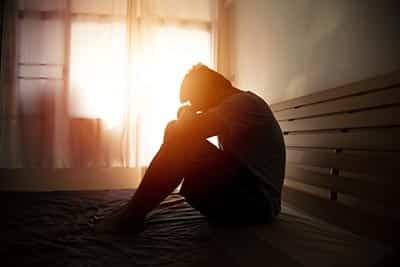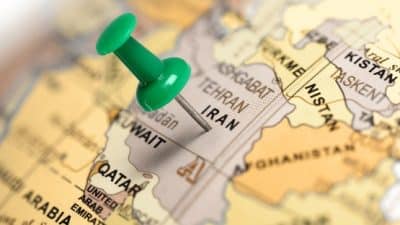
The United States Department of Health and Human Services will award $25.3 million in suicide prevention grants throughout the month of September, which is National Suicide Prevention Month.
The American Rescue plan provided $3.7 million of the funding to address pandemic-related stressors that have increased mental health disorders among younger Americans.
The Substance Abuse and Mental Health Services Administration’s 2020 National Survey on Drug Use and Health reported the negative impact of the ongoing COVID-19 pandemic on Americans’ well-being.
The survey estimated that among adults age 18 or older:
- 4.9 percent of adults had serious thoughts of suicide
- 1.3 percent of adults made a suicide plan
- 0.5 percent of adults attempted suicide in the past year
Among adolescents ages 12-17, the survey estimated:
- 12 percent of adolescents said they had serious thoughts of suicide
- 5.3 percent of adolescents made a suicide plan
- 2.5 percent of adolescents percent attempted suicide in the past year
Funded through $25.3 million grants
- $9 million in Cooperative Agreements for Innovative Crisis Response Partnerships grants for states, territories, tribes and public or private nonprofit entities to create or enhance existing mobile crisis response teams that can respond mental health crisis in lieu of law enforcement or emergency medical responders.
- $7.3 million ($3.6 million from ARP and $3.7 million from annual appropriation) in Cooperative Agreements for the Garrett Lee Smith (GLS) State/Tribal Youth Suicide Prevention and Early Intervention Program to support implementation of youth suicide prevention and early intervention strategies in schools, institutions of higher education, juvenile justice systems, substance use and mental health programs, foster care systems, and other child and youth-serving organizations.
- $2.2 million ($2.1 million annual appropriation and $102,000 ARP) for the GLS Campus Suicide Prevention Grant Program to support a comprehensive public health and evidence-based approach that: enhances mental health services for all college students, including those at risk for suicide, depression, serious mental illness/serious emotional disturbances, and/or substance use disorders that can lead to school failure; prevents and reduces suicide, and mental and substance use disorders; promotes help-seeking behavior; and improves the identification and treatment of at-risk college students so they can successfully complete their studies.
- $6.8 million for Cooperative Agreements for School Based Trauma-Informed Support Services and Mental Health Care for Children and Youth to increase student access to evidence-based and culturally relevant trauma support services and mental health care by developing innovative initiatives, activities, and programs to link local school systems with local trauma-informed support and mental health systems, including those under the Indian Health Service. With this program, SAMHSA aims to further enhance and improve trauma-informed support and mental health services for children and youth.
988 Lifeline: Callers ‘more hopeful’
On July 16, the U.S. transitioned to 988, an easy-to-remember, three-digit number for reaching the 988 Lifeline (formerly the National Suicide Prevention Lifeline).
According to the Centers for Disease Control and Prevention:
- The U.S. had one death by suicide every 11 minutes in 2020
- Suicide was the second leading cause of death for young people aged 10-14 and 25-34
- From April 2020 to April 2021, more than 100,000 people died from drug overdoses
Studies have shown that after speaking with a trained crisis counselor, most 988 Lifeline callers are significantly more likely to feel less depressed, less suicidal, less overwhelmed and more hopeful.
New grant opportunity to support lifeline in tribal communities
HHS, through SAMHSA, is also announcing a new $35 million grant opportunity to better support 988 Lifeline services in tribal communities, which face unique challenges to accessing technology and crisis services. This funding will result in more trained crisis counselors being able to connect with even more people in need.
The grant is part of the $150 million allocated for the 988 Lifeline under the Bipartisan Safer Communities Act signed by President Joe Biden on June 25.
This investment builds upon the $432 million already provided by the Biden-Harris Administration to support the 988 transition, which includes $105 million in grant funding to states and territories, provided by the American Rescue Plan, to improve response rates, increase capacity to meet future demand, and ensure calls initiated in their states or territories are first routed to local, regional, or state crisis call centers. Prior to this historic investment, the Lifeline, which has existed since 2005, had been long unfunded and under-resourced.
If you or someone you know is struggling or in crisis, help is available. Call or text 988 or chat 988lifeline.org.










